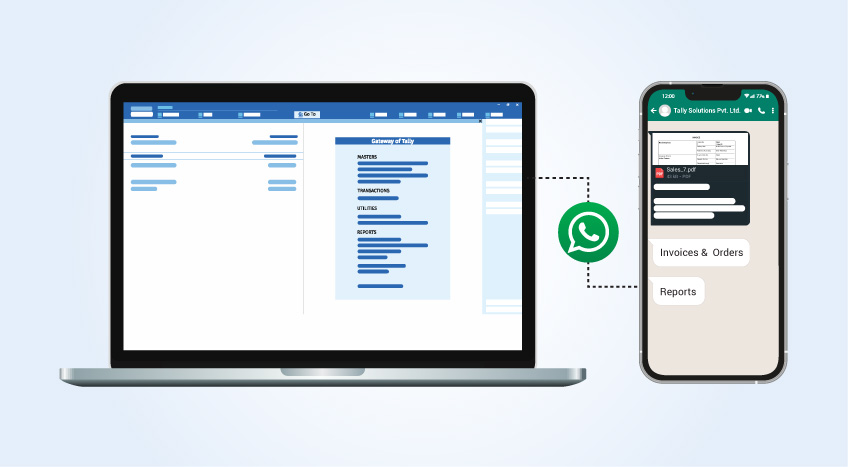SHARE
Tally Solutions | Updated on: June 7, 2022
- Understanding supply chain
- What is supply chain management
- Why is supply chain management important?
- Role of an accountant in supply chain
- Getting a grip on your supply chain through accounting
Supply chains are one of the major factors that keep manufacturing businesses going. The continual and timely supply of raw materials and input components feeds a company’s operations. Once the product is manufactured, it again goes through the supply chain to reach the final consumer of the product. Supply chains involve many people, such as suppliers, distributors, transporters, and retailers. Marketing, procurement, product development, operations, distribution, finance, and customer service are all essential processes in the supply chain. Accountants are essential to the entire supply chain. Read on to know how accountants have a crucial role in supply chains.
|
Business Software for Small Businesses and Start-ups in Indonesia |
Impact Of Automation on Accounting & Business Software Industry |
Understanding supply chain
When you trace the path of a product through its life cycle, you realize that it starts from raw materials. Companies source these materials and input components. The production process converts the materials into a product. This is then shipped through distributors, wholesalers, and retailers before reaching the final consumer. This flow of materials, goods, and services forms the supply chain, and it feeds businesses with the input they need to operate. For a manufacturer, the input is raw materials and components. A retailer needs to source products to stock shelves with and sell.
An active and streamlined supply chain keeps materials and goods flowing. The input supply chain feeds the production process, and any disruption will impact operations. The outgoing supply chain keeps the customer supplied with goods and helps the company stay competitive. SCM should avoid delivery delays and product shortages.
What is supply chain management?
Supply chain management or SCM manages the movement of materials, components, and finished goods on time and at the minimum cost. Supply chain management encompasses the input process, production, and product journey to market. It is becoming increasingly important to cut costs, improve efficiency and become more competitive.
The supply chain starts with the supply of raw materials to the company, the production, and then delivery to the end customer. It involves the vendors, service providers, resources, processes, and technologies that keep the supply chain moving. So, SCM connects with all the processes in the company. The more efficient the SCM is, the more money the company can save. So, it is safe to say that good supply chain management can directly affect the company’s bottom line.
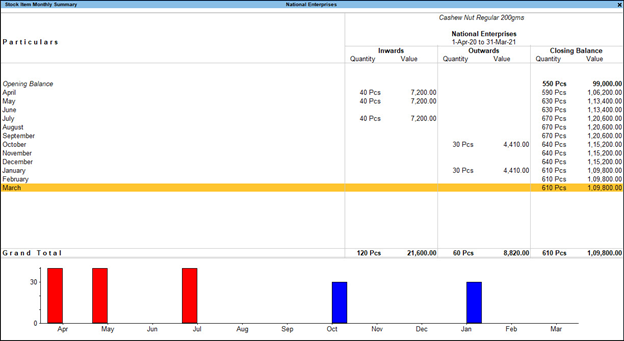 Stock aging analysis in TallyPrime
Stock aging analysis in TallyPrime
Why is supply chain management important?
Supply chain management centrally manages the end-to-end flow of materials and services in a company. So, it has great potential to improve many aspects of its operations and improve its profitability.
- Operating Costs: Items in inventory cost money to store. So the longer any component or material stays in inventory, the more it adds to the company’s expenses. Efficient SCM ensures an adequate supply of raw materials and goods without overstocking inventory.
- Production Costs: A stockout of a vital material or component can bring a company's production to a halt. Idle machinery and wages cost the company huge amounts of money. So, ensuring timely delivery of supplies saves companies money.
- Overall Cost: The many touchpoints and people involved in supply chains add up to the total cost. By finding the most efficient and cost-effective supply chain plan, SCM trims the overall costs of the supply chain. It also prevents stockouts that spoil the company’s reputation or dead stock of unsold inventory.
- Customer satisfaction: An efficient supply chain delivers products and services to customers accurately and quickly. After-sales service is quick and correct. When there are minimal delays and wrong deliveries, customer satisfaction gets a boost. It also enhances the reputation of the company.
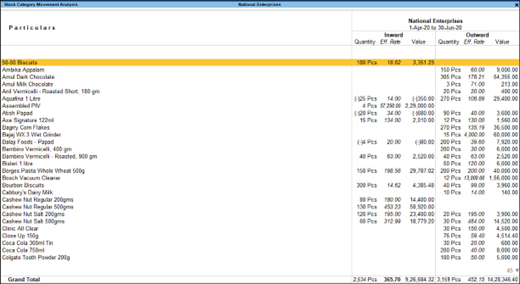 Movement analysis report in TallyPrime
Movement analysis report in TallyPrime
Role of an accountant in supply chain
Accountants play a significant role in supply chain management. Some of the key areas that they play a significant role in are:
The flow of information: The entire supply chain is connected with the flow of documents that carry information. Accurate and efficient accounting ensures that the flow of information supports the supply chain's activities. The procurement, logistics, inventory, and production processes are tracked through accounting and inventory management.
Analysis: Competitive analysis, market analysis, and risk analysis are essential for SCM to operate at the lowest risk and cost. The costing aspect of the supply chain is managed and analyzed by accountants, and they help plan, estimate, and perform value chain costing. The cost benefits of their strategies are reflected in the accounting records.
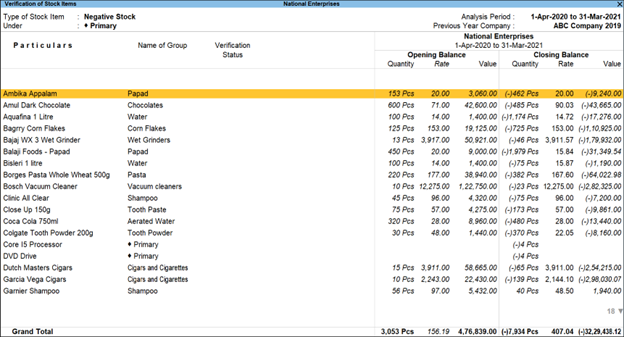 Verification of stock report in TallyPrime
Verification of stock report in TallyPrime
Performance benchmarking: Keeping the SCM process on track with its goals and measuring performance is in the domain of accountants. Accountants help strategize, eliminate waste, and improve throughput time and flexibility.
Reporting: Accountants analyze and evaluate the supply chain management process to generate analysis and other reports used by management for monitoring and decision-making. They also report on the performance of the supply chain and help identify problem areas and bottlenecks that need improvement.
Controls: The accounting department enforces internal controls, checks, and balances that prevent malpractices and mistakes in the supply chain. They ensure accuracy in the deliveries, stocks, payments, and all financial aspects of managing a company’s supply chain.
Relationship management: Accountants communicate with the vendors as well as the buyers of the company. A smooth, accurate, and quick accounting process maintains a good relationship with the suppliers and buyers.
Getting a grip on your supply chain through accounting
Accounting lays the foundation for the paperwork and flow of information in supply chains. TallyPrime is a robust and complete accounting system that gives you all the tools required for optimum inventory management. Tally helps you manage the procurement and inventory processes through physical or digital invoices and bills. The paperwork for production and outgoing inventory is also managed and tracked. Tally’s reports help you analyze and visualize your supply chain so that you can make it as cost-effective and efficient as possible. TallyPrime is the complete toolbox that you need for optimal SCM.
Read More:
Latest Blogs

5 Must Have Reports Insights in Your Dashboard

Import Data from Excel to TallyPrime

All-New Simplified & Powerful Report Filters in TallyPrime
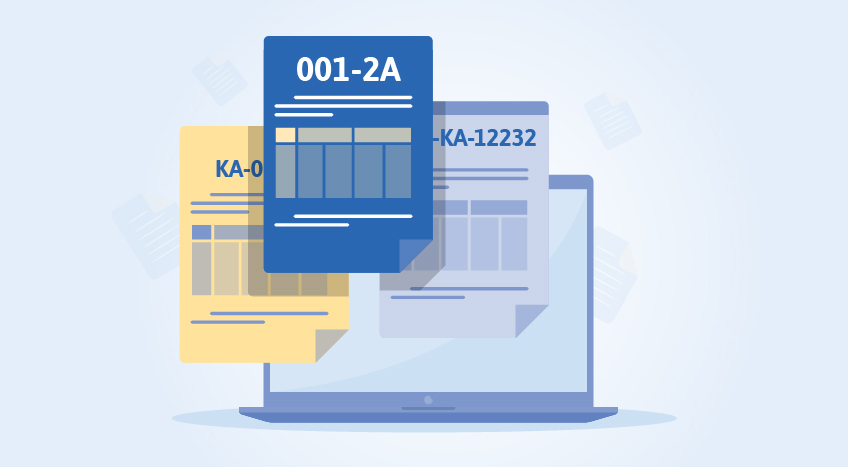
TallyPrime’s Flexible Voucher Numbering Capabilities for Accurate Recordkeeping





